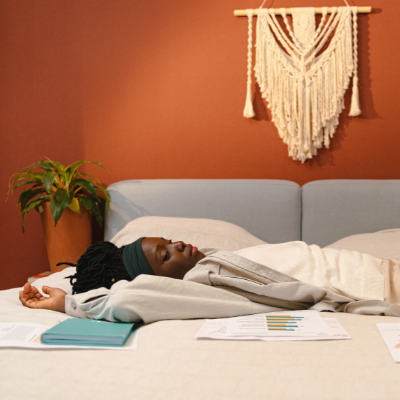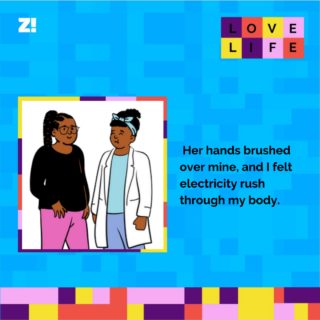
The house I grew up in is the oldest memory I have of home and loneliness. It was a three-bedroom flat in a small white duplex in Evboutubu, Benin City. Our neighbours called it “white house” and used it as a landmark to describe other places. It had a rusting green roof I looked forward to seeing on my way from school. Adorning the low fence was a burst of red and green flowers I plucked for the play soups I cooked in the backyard when no one was looking.
Behind the house was a stretch of land with trees every foot. I remember running around those trees with my brothers and the neighbour’s kids on Saturdays. The guava tree was just behind our flat, the one from which the canes my siblings and I were flogged with were plucked. It was also the only one I ever climbed.
The mango tree was next to the orange tree which was at the extreme end of the compound, where weeds often grew. There was a coconut tree which was the tallest in the yard. My mum warned about snakes so we kept our games around the avocado tree which was next to the poultry the landlady owned.
My two brothers played rough, and I’d gotten to the stage when everybody reminded me that I’m a girl so I can’t play with the boys. My sister was too little to be my friend. I was almost always alone except for when I was running errands.
During my first term in boarding school, I would fall asleep crying and dream of going home to the house with the trees in the backyard. In my dreams, I would run around the trees with my siblings, but whenever I came home, I was still lonely as ever.
I don’t remember much else from that time except for reading a lot of books. I learnt how heavy the word “lonely” is from a book. I liked how it distinguished itself from the word ‘alone’ by describing a deep emptiness felt even in the company of friends and family. As an adult, learning that loneliness can be an emotional response to perceived isolation validated my childhood experience.
As a child, I looked forward to the days my dad spent at home, away from work. On those Saturday mornings, he would drive me and my siblings to Agho junction where he bought his weekend paper. The rides were always a fun experience. I would sit in the front seat beside my dad, listening to Bob Marley, Buju Banton and Gregory Isaacs with the glasses wound down. Till today, it’s my favourite way to ride in a car.
For lunch on Sundays, he’d take me, my siblings and my mum to Matice, Mr Biggs or Kaydees. Every Christmas holiday was spent in our village, in proximity to members of the extended family. Those days started and ended with cousins, distant relatives and friends of the family flocking in and out of our house. No matter how early or late it was, my dad would always welcome them with the same enthusiasm — introducing everyone to each other even though we’d already met. For him, home is family.
We moved out of the house with many trees, into a duplex my parents built. I was grateful to have a pink room with only one roommate, my sister. Every day, a technician or the other was in the house fixing something. One of them attached a full-length mirror to our wardrobe. Another one fit a water heater in our bathroom.
When armed robbers broke into my bedroom one Sunday morning, my first instinct was that it was the plumber holding a plunger, not a man with a gun pointed at me lying in bed. That robbery incident ended with my dad being kidnapped, and until he returned, my mum, my siblings and I slept in one bed for fear of the incident repeating itself.
He returned with scars all over his legs, saying the robbers assured him they won’t come back, something about a network of other robbers. He paid for the neighbourhood security service and had the local police squad stop by our house every evening for a couple of months. Despite our best efforts to safeguard ourselves, two years later, robbers broke into our home again. This time, I was a university student and was only at home because of the ASUU strike.
When the strike ended, I went to school and stopped going home so often. And that’s how that house stopped being home for me. When I gained admission to the university, my parents got me a small self-contained room in an apartment block off-campus. I was often too afraid to be by myself, so I spent most of my nights with my best friend at the time who lived in a shitty hostel in school, where girls bathed outside, pooped in black cellophane they tossed over the fence and denied all of it when they were asked.
During this time, home meant a lot of things. On some days, it was my father’s house. On other days, it was my best friend’s room in hall two or her parent’s house. Whenever my best friend and I fought and I had to spend the night at my house, I wouldn’t be able to sleep through the night. The room didn’t even smell familiar. The next day, I’d try to reach her so I can do whatever it took to return to normalcy.
At some point, we started fighting a lot. We were learning that we were very different people after two years of living within an inch of each other every given minute. I learnt that I didn’t really like boys or care what they thought about me the way she did. I didn’t want to be a popular girl, fake smiling at people she hated. I wanted to date girls and I did.
So I would cancel our plans to hang out and either spend time with my girlfriend or be alone in my room writing. It was during my alone time I learned to roll joints.
I didn’t notice when my room became home, but when I needed to be alone, I came to appreciate it was the last room on the block. Around this time, I dropped out of school because I was tired of lying to myself I could graduate with good grades studying a course I didn’t care for.
My move to Ilorin in 2016 was abrupt. I had been planning to go to Ghana for school after I dropped out. When my dad told me that couldn’t happen anymore because he couldn’t afford it, I knew I still had to leave Benin. There was nothing there for me. I had stopped sleeping at home again. Most of my nights were spent in clubs or with a friend.
I picked Ilorin when my dad asked where I wanted to go because it was far from everything and everyone I knew. When I arrived there and saw the rams, goats and chickens living amongst people, I was so sure I had found home. Tall trees littered the streets. Nobody was in a hurry to get away from anything. Above all, it reminded me of my father’s house in the village, with the red sand, the cool air and the trees. I fell in love immediately and the city held me. I remember how light I felt the next day, grateful to have left my trauma behind.
But what they don’t tell you is that trauma doesn’t forget.
The first time I called a person home, it was because of how safe she made me feel. I could talk to her about anything without feeling judged. We smoked joint after joint together and listened to sad girl music. With her, I could be whatever I wanted. We loved each other so much until we didn’t.
Something they don’t teach you, something I wish they did, is that home is a shapeshifting concept. Home can be a person or a place. Home isn’t static. It is whatever you want it to be. Same way you can call a place home is the same way you can declare it unsafe and move on.
If I had known this, maybe I wouldn’t have spent all those nights crying, begging my girlfriend not to leave me alone. I wouldn’t have done the things I did in a bid to keep her. When our relationship ended, I was moving into a new house with a friend — one without scars of the lives lived before I moved in, one who didn’t have memories that choked me in my sleep.
That house became home for a year until the red walls started peeling and black insects gathered at the side of my bed, leaving me with a litter of scars all over my butt and thighs. When I moved into a bigger apartment, I started to look for the things that would make it home for me.
Aside from the furniture and kitchen utensils. I wanted to feel safe wherever I called home. Then, there’s comfort. What’s home without some form of ease? Since that move, I’ve found more homes than I can count. Homes in houses, places, food and people.




